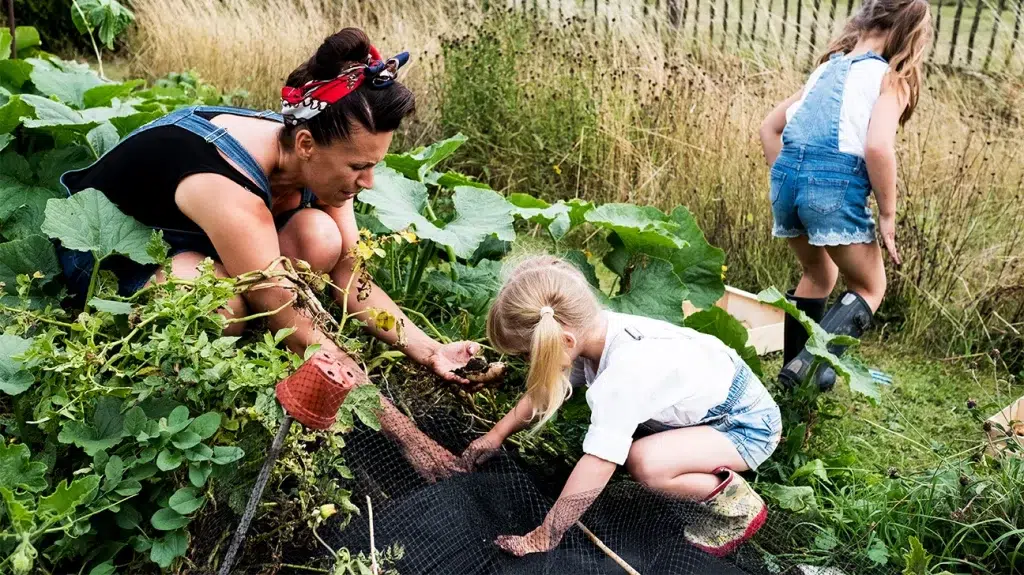Horticulture, which is the science and art of growing and cultivating fruits, vegetables, nuts, seeds, herbs, sprouts, mushrooms, algae, flowers, seaweeds, non-food crops such as grass and ornamental trees and plants, and non-food products such as grass and ornamental trees and plants, offers several advantages, both from an economic and environmental perspective. Some of the key advantages of horticulture include:
- Food Production: Horticulture plays a crucial role in food production by providing a wide variety of fruits, vegetables, and other crops, contributing to global food security and nutrition.
- Economic Benefits: Horticulture is a significant contributor to the economy, generating income and employment opportunities for farmers, agricultural workers, and related industries, such as food processing and retail.
- Sustainable Agriculture: Horticulture can be practiced using sustainable and environmentally friendly methods, reducing the use of synthetic chemicals and promoting organic farming practices.
- Diversification: Horticulture allows for the diversification of agricultural activities, reducing the risks associated with mono-cropping and increasing the resilience of farming systems.
- Improved Nutrition: The wide range of horticultural crops provides essential vitamins, minerals, and dietary fiber, contributing to a more balanced and nutritious diet.
- Medicinal Plants: Many horticultural plants have medicinal properties, making them a valuable source of natural remedies and pharmaceutical ingredients.
- Environmental Benefits: Horticultural practices can help conserve soil and water resources and promote biodiversity by providing habitat for beneficial insects and other wildlife.
- Urban Greenery: Horticulture enhances the aesthetics of urban areas by creating green spaces, parks, and gardens, which improve air quality and reduce urban heat island effects.
- Community and Social Benefits: Gardening and horticultural activities provide recreational and therapeutic opportunities, fostering community engagement and mental well-being.
- Climate Change Mitigation: Horticulture can be adapted to mitigate the effects of climate change through practices like agroforestry and the cultivation of drought-resistant crops.
- Access to Fresh Produce: Horticulture allows for local production of fresh, seasonal produce, reducing the need for long-distance transportation and associated energy consumption.
- Education and Research: Horticulture offers opportunities for research and education in agriculture, biology, and environmental sciences.
- Aesthetic and Cultural Value: Horticultural practices contribute to the beauty of landscapes, gardens, and cultural traditions, enriching the human experience.
It’s important to note that the specific advantages of horticulture may vary depending on factors such as the type of crop, location, and the methods used. However, horticulture is a valuable and versatile field with numerous benefits for individuals, communities, and the environment.
- Crop Diversity: Horticulture allows for the cultivation of a wide variety of crops with different growth requirements, helping farmers adapt to changing environmental conditions and market demands. This diversity also aids in crop rotation, reducing the buildup of soil-borne diseases and pests.
- Local Food Production: Horticultural practices support local food systems, enabling communities to produce their own fresh and seasonal food. This reduces the carbon footprint associated with long-distance food transportation and enhances food sovereignty.
- Soil Health: Horticulture promotes the use of organic matter, compost, and natural fertilizers, which improve soil structure, fertility, and health. Healthy soils are essential for sustained crop production and ecosystem stability.
- Water Efficiency: Many horticultural crops, such as drip irrigation and mulching, help conserve water resources by reducing evaporation and runoff. This is especially important in regions facing water scarcity.
- Value-Added Products: Horticulture offers opportunities for value addition through food processing, preservation, and the creation of specialty products like jams, jellies, sauces, and essential oils, increasing economic returns for farmers.
- Green Roof and Vertical Farming: Horticultural techniques are instrumental in green roof and vertical farming systems in urban areas, contributing to energy efficiency, reduced stormwater runoff, and enhanced urban aesthetics.
- Biodiversity Conservation: Horticulture can include the cultivation of native and heirloom plant varieties, which can help preserve biodiversity and heritage crops threatened by extinction.
- Sustainable Land Use: Horticulture can be adapted to various land sizes, from small backyard gardens to large commercial farms, making efficient use of available land and resources.
- Pest and Disease Management: Integrated pest management (IPM) techniques are commonly employed in horticulture, minimizing the need for chemical pesticides and promoting environmentally friendly approaches to pest and disease control.
- Genetic Resources: Horticulture serves as a valuable repository of genetic resources, contributing to breeding programs that develop new crop varieties with desirable traits such as disease resistance and improved nutritional content.
- Cultural and Heritage Preservation: Many horticultural practices are deeply embedded in cultural traditions, preserving the knowledge and skills passed down through generations. This cultural heritage is essential for maintaining connections to the past.
- Erosion Control: Horticultural practices like the planting of cover crops, hedgerows, and terracing can help prevent soil erosion, which is crucial for maintaining soil quality and preventing landslides.
- Carbon Sequestration: Trees and perennial horticultural crops can sequester carbon dioxide from the atmosphere, contributing to climate change mitigation efforts.
- Enhanced Aesthetics and Property Value: Horticultural landscapes, including gardens and well-maintained green spaces, can enhance property values and create visually appealing environments.
- Sustainable Agroecosystems: Horticultural practices can be integrated into agroecosystems, promoting harmony between agriculture and natural ecosystems while preserving ecosystem services like pollination and soil health.
In conclusion, horticulture is a multifaceted field that offers a wide range of advantages. It not only addresses economic and nutritional needs but also plays a vital role in environmental sustainability, biodiversity conservation, and cultural preservation. Its adaptability to different scales of agriculture and various environments makes it a valuable component of a more sustainable and resilient agricultural future. By promoting horticultural practices, we can harness the numerous benefits it offers to improve our food systems, landscapes, and overall quality of life.


